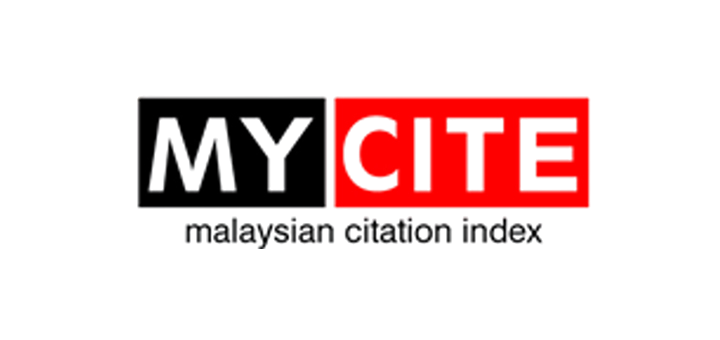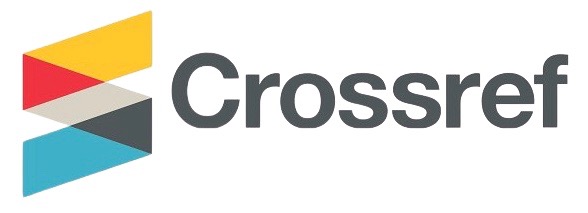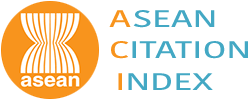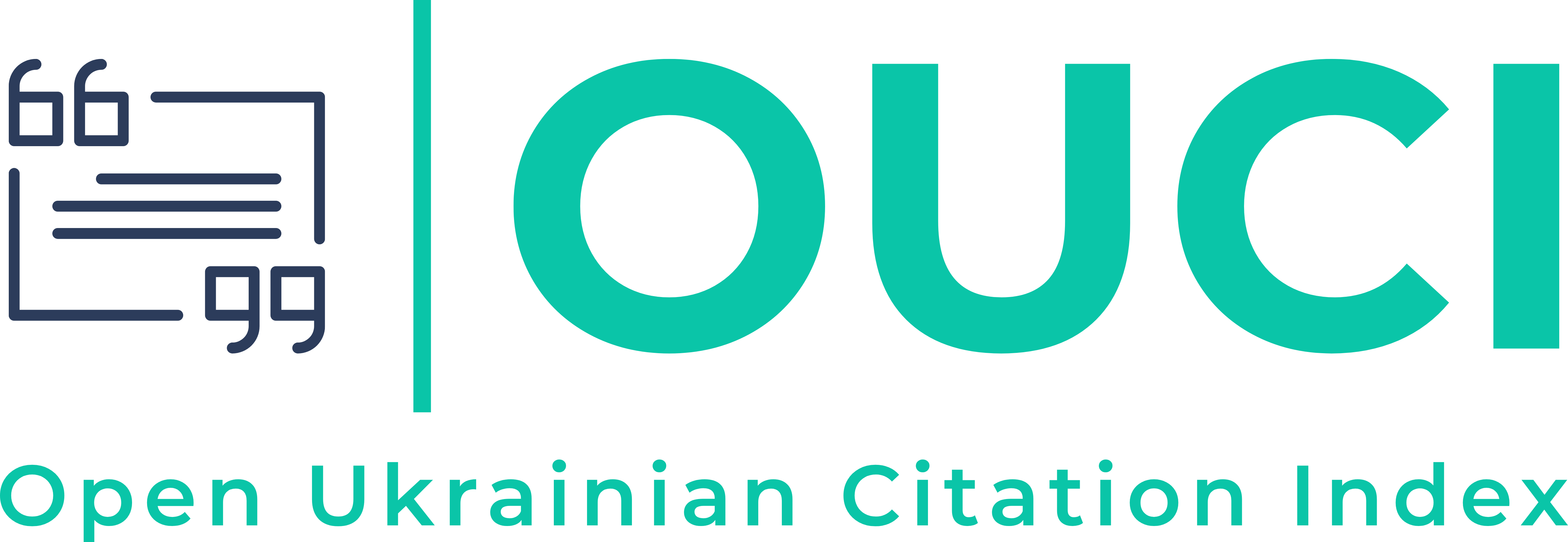Efikasi Kendiri Guru dan Hubungannya dengan Pembangunan Inovasi di Sekolah Rendah
Abstract
Kajian ini dijalankan bagi mengenal pasti hubungan antara efikasi kendiri guru dengan pembangunan inovasi di sekolah rendah. Instrumen utama kajian berbentuk soal selidik yang diedarkan kepada 242 orang guru sekolah rendah di daerah Jelebu, dipilih melalui kaedah persampelan rawak mudah. Data yang dikumpulkan dianalisis menggunakan perisian Statistical Package for the Social Sciences (SPSS) melalui analisis deskriptif dan inferens bagi mendapatkan gambaran yang lebih menyeluruh. Hasil analisis menunjukkan bahawa tahap efikasi kendiri guru di Jelebu berada pada tahap tinggi, terutamanya dari aspek pelaksanaan pengajaran dan pembelajaran, manakala tahap efikasi kendiri guru terhadap pembangunan inovasi berada pada tahap sederhana. Dapatan ini turut membuktikan wujud hubungan yang signifikan antara efikasi kendiri guru dengan pembangunan inovasi di sekolah, menandakan bahawa keyakinan dan motivasi guru memainkan peranan penting dalam usaha membudayakan inovasi. Kajian ini diharap dapat menjadi rujukan serta panduan berguna kepada pihak berkepentingan termasuk Kementerian Pendidikan Malaysia (KPM) untuk menambah baik sistem pendidikan negara serta memperkukuh profesionalisme guru.
Downloads
References
Abdul Said Ambotang, & Andin, C. (2020). Sumbangan Pengetahuan Kandungan, Daya Kreativiti dan Inovatif Terhadap Efikasi Kendiri Guru Dalam Pengajaran Ekonomi di Sabah. Jurnal Kinabalu, 26(1), 155-155.
Ainul Afzan, R., & Ishak A.R. (2021). Isu Dan Cabaran Dalam Pelaksanaan Pendidikan Peringkat Rendah Dan Menengah: Pendekatan Malaysia Semasa Pandemik Covid-19. Malaysian Journal of Social Sciences and Humanities (MJSSH), 6(9), 1-13.
Antala, B., Pružek, M., & Popluhárová, M. (2022). Self-efficacy and attitudes of physical education teachers towards inclusion of pupils with disabilities. Sustainability, 14(20), 13292.
Aswaniza, S. & Rosadah, A. M. (2018). Efikasi Kendiri Guru Sekolah Dalam Hospital Di Malaysia. Malaysian Journal of Social Sciences and Humanities (MJSSH), 13(3), 20–28.
Bandura, A. (1977). Self-efficacy: Toward a unifying theory of behavioral change. Psychological Review, 84(2), 191–215. https://doi.org/10.1037/0033-295X.84.2.191
Bandura, A. (1986). Social foundations of thought and action: A social cognitive theory. Prentice Hall.
Bandura, A., (2001). Self‐Efficacy Beliefs As Shapers Of Children's Aspirations And Career Trajectories. Child development, 72(1), 187-206.
Brandt, W. C. (2023). A review of the literature on creative thinking. ERIC. https://files.eric.ed.gov/fulltext/ED645078.pdf
Bruun, J., & Evans, R. H. (2020). Network Analysis Of Survey Data To Identify Non-Homogeneous Teacher Self-Efficacy Development In Using Formative Assessment Strategies. Education Sciences, 10(3), 54.
Cocca, M., & Cocca, A. (2021). Testing a four-factor model for the Teachers’ Sense of Efficacy Scale: An updated perspective on teachers’ perceived classroom efficacy. Psicología Educativa, 28(1), 39 – 46.
Darling-Hammond, L. (2009). Recognizing and enhancing teacher effectiveness. The International Journal of Educational and Psychological Assessment, 3, 1-24.
Dees, J. G. (1998). The Meaning of Social Entrepreneurship. Stanford University.
Ellis, V., Steadman, S., & Mao, Q. (2020). ‘Come To A Screeching Halt’: Can Change In Teacher Education During The COVID-19 Pandemic Be Seen As Innovation?. European Journal of Teacher Education, 43(4), 559-572.
Fidalgo-Blanco, Á., Sein-Echaluce, M. L., & García-Peñalvo, F. J. (2014). Knowledge Spirals in Higher Education Teaching Innovation. International Journal of Knowledge Management, 10(4), 16–37.
Gálvez-Nieto, J. L., Salvo-Garrido, S., Domínguez-Lara, S., Polanco-Levicán, K., & Mieres-Chacaltana, M. (2023). Psychometric properties of the Teachers’ Sense of Efficacy Scale in a sample of Chilean public school teachers. Frontiers in Psychology, 14, 1272548. https://doi.org/10.3389/fpsyg.2023.1272548
Gay, L. R., & Airasian, P. (2000). Educational research: Competencies for analysis and application (6th ed.). Merrill/Prentice Hall.
Ghazali, D., & Sufean, H. (2016). Metodologi Penyelidikan Dalam Pendidikan: Amalan dan Analisis Kajian (2nd ed.). Penerbit Universiti Malaya.
Gkontelos, A., Vaiopoulou, J., & Stamovlasis, D. (2023). Teachers’ innovative work behavior as a function of self-efficacy, burnout, and irrational beliefs: A structural equation model. European Journal of Investigation in Health, Psychology and Education, 13, 403–418.
Hatlevik, I. K. R., & Hatlevik, O. E. (2018) .Examining the relationship between teachers’ ICT self-efficacy for educational purposes, collegial collaboration, lack of facilitation and the use of ICT in teaching practice. Frontiers in Psychology, 9, 1-8.
Henson, R. K. (2001). The Effects of Participation in Teacher Research on Teacher Efficacy. Teaching and Teacher Education, 17, 819–836.
Hoang, T., & Wyatt, M. (2021). Exploring the self-efficacy beliefs of Vietnamese pre-service teachers of English as a foreign language. System, 96, Article 102422.
Johnson, B., & Christensen, L. (2000). Educational research: Quantitative, qualitative, and mixed approaches. Allyn & Bacon.
Julaihi, N. H., Voon, L. L., & Tang, H. E. (2020). Teachers’ efficacy beliefs in mathematics teaching: A study of public primary schools in Sarawak. International Journal of Service Management and Sustainability, 5(1), 63–82.
Kim, Y., & Choi, J. N. (2022). How to translate creative ideas into innovation? Differential resources for proactive and responsive team idea generation. Journal of Applied Behavioral Science, 58(1), 36–63. https://doi.org/10.1177/00218863211007219
Krejcie, R., & Morgan, D. (1970). Determining Sample Size for Research Activities. Educational and Psychological Measurement, 30, 607-610.
Liang, F. S., & Tai, M. K. (2021). Efikasi kendiri guru di Sekolah Menengah Kebangsaan di Semenanjung Malaysia. International Journal of Education, Psychology and Counseling, 6(40), 160-167
Lim, B., & Poon, J. M. L. (1997). Effects of task difficulty and self-efficacy on performance: A cross-cultural study of managers in Singapore. Journal of Managerial Psychology, 12(2), 134–139.
Makki, B. I., Salleh, R., & Harun, H. (2016). The impact of self-efficacy on job performance: An empirical study of software developers in Malaysia. Journal of Economics, Business and Management, 4(1), 38–43.
Mardhiah, J., & Rabiatul-Adawiyah, A. R. (2016, July). Hubungan kualiti penyeliaan pengajaran dengan efikasi kendiri guru (Working Paper). Universiti Sains Malaysia.
Mardzelah, M., Teoh, Y. P. & Nor Hasimah, I. (2022). Standard Guru Malaysia 2.0 Dalam Kemenjadian Jiwa Pendidik. International Journal of Education, Psychology and Counseling, 7(46), 327-346.
Masitah, M. Y., Azizi, M., Ahmad Makmom, A., Bahaman, A. S., Ramli, B. & Noriati, A. R. (2013). Faktor-faktor yang mempengaruhi efikasi kendiri guru sekolah menengah di Malaysia dalam pelaksanaan pendidikan alamsekitar. Asia Pacific Journal of Educators and Education, 28, 131–153.
Milner, H. R., & Hoy, A. W. (2003). A case study of an African American teacher’s self‐efficacy, stereotype threat, and persistence. Teaching and Teacher Education, 19(2), 263–276.
Mohamad Ridhuan, M. D., Mohd Fairuz, A., & Mohd Zulfikri, A. R. (2017). An innovation in teaching and learning of accounting concept using AccRoBa© game approach. Jurnal Pendidikan Malaysia, 42(1), 21–32.
Mohammed, A. Z. & Mohd, E. @ Ewan M. M.. (2021). The Influence Of Teachers’ Self-Efficacy And School Leaders’ Transformational Leadership Practices On Teachers’ Innovative Behaviour. International Journal of Environmental Research and Public Health, 18(12), 6423.
Mumtaz, B. et al. (2010). Pembinaan instrumen maklum balas 360 MARA. Jurnal Pendidikan dan Latihan, 2(2), 46–61
Noor Lela Ahmad, Mohd Faiz Mohd Yaakob, & Mohd Effendi @ Ewan Mohd Matore. (2020). Cabaran pelaksanaan pentaksiran bilik darjah dalam kalangan guru sekolah rendah. Jurnal Pendidikan Malaysia (Malaysian Journal of Education), 45(2), 57–67.
Nunnally, J.C. (1978). Psychometric theory. California: McGraw-Hill.
Nurahimah, M. Y., & Rafisah, O. (2010). Hubungan kualiti penyeliaan pengajaran dan pembelajaran di bilik darjah dengan efikasi guru. Asia Pacific Journal of Educators and Education, 25, 53–71.
Nursafra, M. Z. (2017). Elemen pemikiran kritis dalam konteks kemahiran berfikir aras tinggi. Malaysian Journal of Social Sciences and Humanities, 1(September), 92–101.
Organisation for Economic Co-operation and Development. (2018). OECD science, technology and innovation outlook 2018. OECD Publishing. https://doi.org/10.1787/sti_in_outlook-2018-en
Overbaugh, R., & Lu, R. (2008). The impact of a NCLB-EETT funded professional development program on teacher self- efficacy and resultant implementation. Journal of Research on Technology in Education, 41(1), 43-61
Riaz, S., Xu, Y., & Hussain, S. (2018). Understanding employee innovative behavior and thriving at work: A Chinese perspective. Administrative Sciences, 8(3), 46.
Stéphan, V. L., Joaquin, U., Soumyajit, K., & Gwénaël, J. (2019). Educational Research and Innovation Measuring Innovation in Education 2019 What Has Changed in the Classroom?: What Has Changed in the Classroom?. OECD Publishing.
Subramaniam, A. (2022). The Relationship between Job Satisfaction and Commitment among National School Teachers in South Kinta District, Perak. Management Research Journal, 11(2), 1-13.
Talsma, K., Schüz, B., Schwarzer, R., & Norris, K. (2018). I Believe, Therefore I Achieve (And Vice Versa): A Meta-Analytic Cross-Lagged Panel Analysis Of Self-Efficacy And Academic Performance. Learning and Individual Differences, 61, 136-150.
Tschannen-Moran, M., & Hoy, A. W. (2001). Teacher Efficacy: Capturing An Elusive Construct. Teaching and Teacher Education, 17(7), 783–805. https://doi.org/10.1016/S0742-051X(01)00036-1
Utterback, J. M., & Abernathy, W. J. (1975). A Dynamic Model of Process and Product Innovation. Omega, 3(6), 639–656.
Van de Velde, C. (2017). Educational Innovation And Organizational Change: A Practice-Based Approach. Routledge.
Wan Ali Akhbar, Khadijah Abdul Razak & Mohd Isa Hamzah. (2022). Innovation Material For Islamic Teaching Education And Its Relationship To Basic Concepts Of Education. Journal of Positive School Psychology, 1536-1547.
Wiegerová, A., Svatoš, T., Pavelková, I., Mareš, J., Hrabal, V., Ficová, L., & Gavora, P. (2012). Self-efficacy v edukačných súvislostiach. SPN–Mladé letá.
Wood, R., & Bandura, A. (1989). Social Cognitive Theory Of Organizational Management. Academy of Management Review, 14(3), 361-384.
Zhao, Y., & Watterston, J. (2021). The changes we need: Education post COVID-19. Journal of Educational Change, 22(1), 3–12. https://doi.org/10.1007/s10833-021-09417-3

















